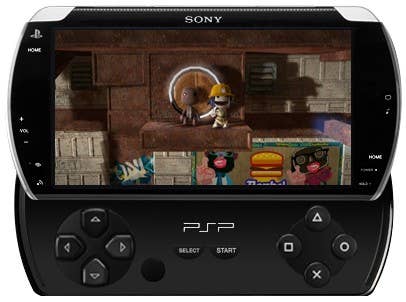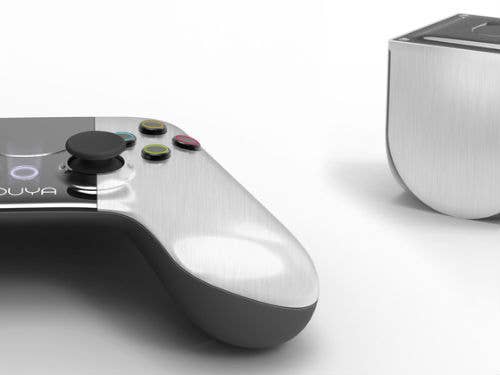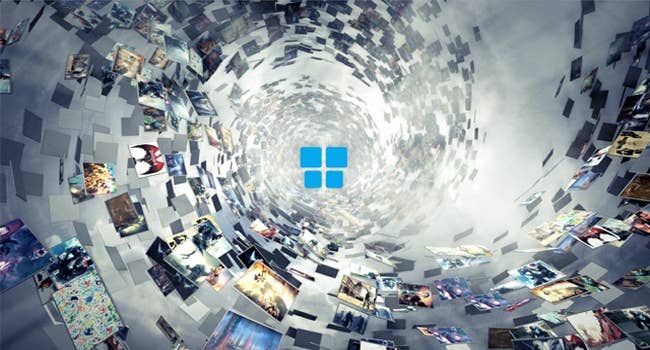Roundtable: 99, The Magic Number
The GamesIndustry International team on why and what to expect from a round of $99 consoles
99 is a massive psychological turning point in pricing, from property to panini. For a start, it drops a digit from that all important first figure, or chops off a column of numbers entirely - although we all consciously know that 4.99 is really not appreciably less than 5, our brains shortcut the information and point us at the penny saving. There's a good reason we're all paying 99c or 69p for our apps: when it comes to pricing, we are not entirely rational beings.
It's incredibly pervasive: a 1997 survey by Marketing Bulletin found that over 60 per cent of all advertised prices ended in a 9, with 30 per cent ending in 5, 7 per cent in 0 and 3 per cent in the remaining seven digits. Whether you're paying £4,999 or £4.99, that little goes a long way.
For consoles, and a lot of other consumer electronics, $99 or £99 has long been considered the magic number, a way to uptick sales in the autumn years of a machine's lifetime. Dropping below a hundred dollars or pounds yielded an extra burst of life for the original PlayStation and its successor, the DS and DSi and the Wii.
Now, we've seen the 360 follow suit, albeit under slightly different circumstances, rumours of a similar PS3 package have been predictably close behind.
Ten year plans and lifecycles extended by new markets aside, this generation is slowing down and getting ready to pick up its gold watch - but are those 99s really all about squeezing the last life from current platforms, or is it a test-bed for next-generation pricing strategies already facing low-cost rivalry?
Read on to see what the GamesIndustry International team has to say.
Rachel Weber
I'm not sure that this is about squeezing a bit more cash juice from the consumer orange, more a recognition that consoles aren't the unattainable, hardcore machines they used to be.
Look at PCs. 20 years ago having even a basic one was a big deal, ten years later they were more available but still carried a hefty price tag. Now phone shops give away laptops with contracts, and you can buy a usable gaming PC for around £300. The same thing happened with DVD players, MP3 players, and needs to with consoles. As they become the box that every family has in their living room, their price has to reflect that.
"Look at PCs. 20 years ago having even a basic one was a big deal, ten years later they were more available but still carried a hefty price tag. Now phone shops give away laptops with contracts."
It's a brave man that goes out an spends £400, the launch price of the original PlayStation 3, on a gaming machine and declares it's for little Jimmy and Poppy to play on. The Wii did ridiculously well with families because it was cheaper, at a price that wouldn't make a dent on the average middle class bank account, and didn't look like you might need to call your teenage son down from fiddling with himself in the bedroom every time you wanted to do some yoga. Consoles want to be part of everyday life? Then they need to be cheaper. They want to be purely for the hardcore that would rather buy hardware than a holiday next year? Just do what you did last time boys.
Of course some products, the Apple iPad, the iPhone, well... the Apple anything, will always be able to demand a higher price because they're so damn cool. Can the hardware manufacturers achieve that with the next-gen? Take a look at your average Microsoft executive and get back to me.
Matt Martin
As a consumer the magic £99 figure for a PlayStation 3 grabs my attention instantly. Lest we forget, this is a console that launched with a luxury price of £425 in the UK. £425! If I shop around for all those exclusive games I passed over but are now in the bargain bins, price-gouged online, knocking around eBay and propping up the second hand shelves, I'm spoilt for choice. And I might even swing to a PlayStation Plus subscription too - cool for me and a digital win for Sony.
This is how I always thought about games consoles growing up - from the Atari 2600 to the original PlayStation. If it wasn't cheap it may as well have been priced at £1 million, because either way it was out of my range.

Can Sony afford to make a £99 console? Maybe not just yet, but cleverly, like it has before, it could put the price just above £100 and let retailers slash the difference. That's what it did with the £425 PlayStation 3 - it wasn't long before the online price shuffled down to £399. And the PSPgo, perhaps sensing it was a dog, was cut in price by supermarkets before launch. In that sense Sony only has to do part of the job and let the cutthroat retail community finish it off. Would Sony think like that? There's a reason it bought in ex-ASDA man Fergal Gara as the new UK managing director, he understands how supermarkets and online stores think and this 'new' Sony is all about selling units.
Steve Peterson
The fabled $99 price is indeed a critical price point for consoles, even more so these days than in times past. The most common usage of game consoles is no longer games; it's watching streaming video (Netflix and others). If all you want to do is stream video, Roku has boxes starting at $59, and there's Apple TV at $99, and others to choose from. If there was suddenly a $99 choice of an Xbox 360 (aside from the subsidized model), or a PS3 at $149, that could potentially pull millions of sales from those other boxes. The PS3 even at $149 would be a compelling deal given the number of free-to-play MMOs now available, and the relatively inexpensive PlayStation Plus that gives you a library of free games. When Gaikai gets rolling on PS3, there will be even more free games.
Lower cost consoles are critical for this Christmas with a wave of $200 tablets arriving. Google's Nexus 7 is already sold out for the $199 version, a new Kindle Fire is coming soon, and rumors abound that an iPad Mini in the same price range is nigh. For parents looking for Christmas gifts, those tablets will look very compelling. If game consoles are all priced higher than $200, their sales may suffer. Sales for consoles overall have dropped steadily since last year, and at this point only a price cut has any hope of reviving them.
"Nintendo has a crucial price decision ahead of them for the Wii U; price it high and risk poor sales, price it low and lose money on every one."
Nintendo has a crucial price decision ahead of them for the Wii U; price it high and risk poor sales, price it low and lose money on every one. Wherever Nintendo puts the Wii U price, you know that Sony and Microsoft will be ready to beat it with a lower price and more software bundled in. Sony desperately needs to get more traction for the PS3, and Microsoft will try to prevent them from taking the lead in sales. Both have a strong incentive to drop prices.
Don't forget, too, there will likely be a new iPhone sucking up more consumer dollars in October. This is the toughest console market I can ever remember seeing, and I've seen them all. Companies that don't get good market share this Christmas are going to have a difficult 2013, and it may hurt their chances for a good launch of new consoles. Ouya's tremendous response for a $99 console shows just how eager the market is for HD graphics at an affordable price. Go $99 or go home, console makers. If you don't have a model at the low end, you may not have any models selling at all in the future.
Mike Williams
I don't expect that the $99 price for consoles will revolutionize the industry. The Ouya currently isn't mainstream and the Xbox 360 has had a long life at this point.
The Xbox 360 $99 subscription option will allow more gamers to enter the Xbox Live ecosystem, which is great for Microsoft. The company is pushing "Windows Everywhere" and part of that is Xbox Live integration. More Xbox Live users means more chances to convince consumers to purchase Windows 8 computers and Windows Phone 8 phones.

The Ouya is the new Commodore 64; enthusiasts will play with the console and have a place to show off their coding talent. If it takes off, it could have the additional effect of strengthening Google's Android OS. Hobbyists code for Ouya and port to Android and Chrome Web, both of which already support USB controllers. It doesn't fix Android's monetization or piracy problems, but you could see a new lineup for first-run Android games instead of the clones and ports that occupy Google Play now.
The $99 price point isn't the forefront - it's the foundation. $99 consoles can be used to build up existing ecosystems and act as a gateway drug for more premium consoles. Assuming the Xbox 360 subscription model does get used for the next Xbox, I'd expect $199 as the rock-bottom price. $199 looks cheap, but not so cheap that consumers will devalue the console.
James Brightman
I follow the NPD reports in the US every month, and the hardware sales have been downright dismal. Whether it's the economy, a lack of interest due to less compelling software or that many gamers are getting their fix from smartphones, tablets and free-to-play isn't easy to pin down. What's clear to me, however, is that if Microsoft and Sony want to actually sell some consoles this holiday, they absolutely must cut price.
That said, I'd be shocked to see a true $99 price point from either company. Even $149, though, while not "magic" would be quite compelling. There's an abundance of triple-A software coming this holiday, and for consumers who've waited all these years, $149 is a rock solid entry point.
There's an abundance of triple-A software coming this holiday, and for consumers who've waited all these years, $149 is a rock solid entry point.
A PS3 for £99 would be a huge move for Sony. If the company can get more aggressive with its Gaikai integration, imagine all the possibilities a consumer would have with a PS3. Sony would be smart to test out numerous Gaikai features on the PS3 before making it a staple of the PS4 too. While Microsoft has dominated in monthly US sales, a $149 PS3 with a plethora of games to try out for free via Gaikai could be a big advantage and it could also have a domino effect, putting pressure on Microsoft to finally reveal its cloud gaming plans.
As Steve pointed out, the market is so much more complicated now than it was even just five years ago. The race to $99 doesn't mean what it once did, not when most consumers have so many other options to get their gaming fix. But at the very least, Microsoft and Sony need to try. And I don't mean by bundling in more - both consoles need big price reductions this fall. Anything less, and Santa might just fill his sleigh with iPad Minis for Christmas, leaving PS3 and Xbox 360 in warehouses.
David Radd
It's a symptom of how sensitive the price issue has been that it's roughly seven years after the Xbox 360 launched and the console is only just now reaching the $99 mark, and doing that only with quirky contracts. The PS3 has made the most progress as far as pricing goes, decreasing from its $600/$500 pricing range down to $250 now, but it's still not a "spontaneous buy" price.
I understand that the $99 mark is a "game changer" for consoles, but this go around there were so many other factors setting in that Nintendo had the luxury of keeping the price of the Wii (relatively) high, because it took a few years for the competition to scrape down to their initial price range. This generation is unique in that multiple participants mayl want to get more life out of their consoles after their next consoles release, or at least after they're made known.

It's a unique opportunity because of how the devices have been positioned - the Xbox 360 can be an entertainment hub and also a family friendly gaming device with Kinect. PS3 has the advantage of touting itself as a cheap Blu-ray player, and they might have some plans for using Gaikai to enhance its lifespan. I'd expect to see both Microsoft and Sony actively promoting both the Xbox 360 and PS3 for the next three years. Nintendo appears ready to "turn the page" and concentrate almost exclusively on the Wii U after it releases not unlike they've done during past console transitions, but I could be mistaken.
So while I think that cheap console offerings are going to become abundant in a short while, I'm not sure how directly that's going to translate into pricing for the next generation of consoles. Certainly, I think all parties have learned the lesson about keeping console costs as low as possible (especially Sony) and I can't see another console launching at a half grand anymore... but it remains to be seen just how affordable the next Xbox and PlayStation will be, or the Wii U for that matter. If I had to guess though all of the console prices will end with a 9 because $299 looks so much lower than $300, doesn't it?
Dan Pearson
I think the key factor here is not a shift in pricing, but a shift in the way things are being sold. Key to Microsoft's $99 Xbox is the Gold LIVE membership tie-in - not so much a price cut as a hire purchase scheme.
Much like software, hardware is making the transition from product to service. By supplementing the cost of a base unit with a subscription which rakes it back once the consumer is locked in - just as mobiles and satellite TV services have done for many years - hardware manufacturers can play the long game and future proof hardware by over speccing at the point of sale, putting out a machine which would be unaffordable to the huge majority if paid for in a single transaction, but which is much more appealing when sliced into 12, 24 or 36 smaller monthly chunks.

Plus, nobody wants to leave hardware festering uselessly under the TV because they've let their subscription lapse. Even if a machine makes its way onto the second hand market, making a subscription essential to its use means that the manufacturer can re-engage the revenue stream from the next buyer.
In truth, it's not that revolutionary. It's what most hardware manufacturers, Nintendo aside, have been doing for years - sell your machine at a loss and make it back with a healthy attach rate. Widening the margin which needs to be recovered is a risk, for sure, but with the changing landscape of monetisation enabling constant revenue streams from microtransactions, subscriptions and freemium titles, some of that risk is reduced. There's also the argument that, soon, high-end user side hardware isn't going to be necessary, once streaming kicks in as a fully viable alternative. When it does, it seems unlikely that we'll be paying anything at all for the box and everything for the 'channels', just as we do for Sky or OnLive.

